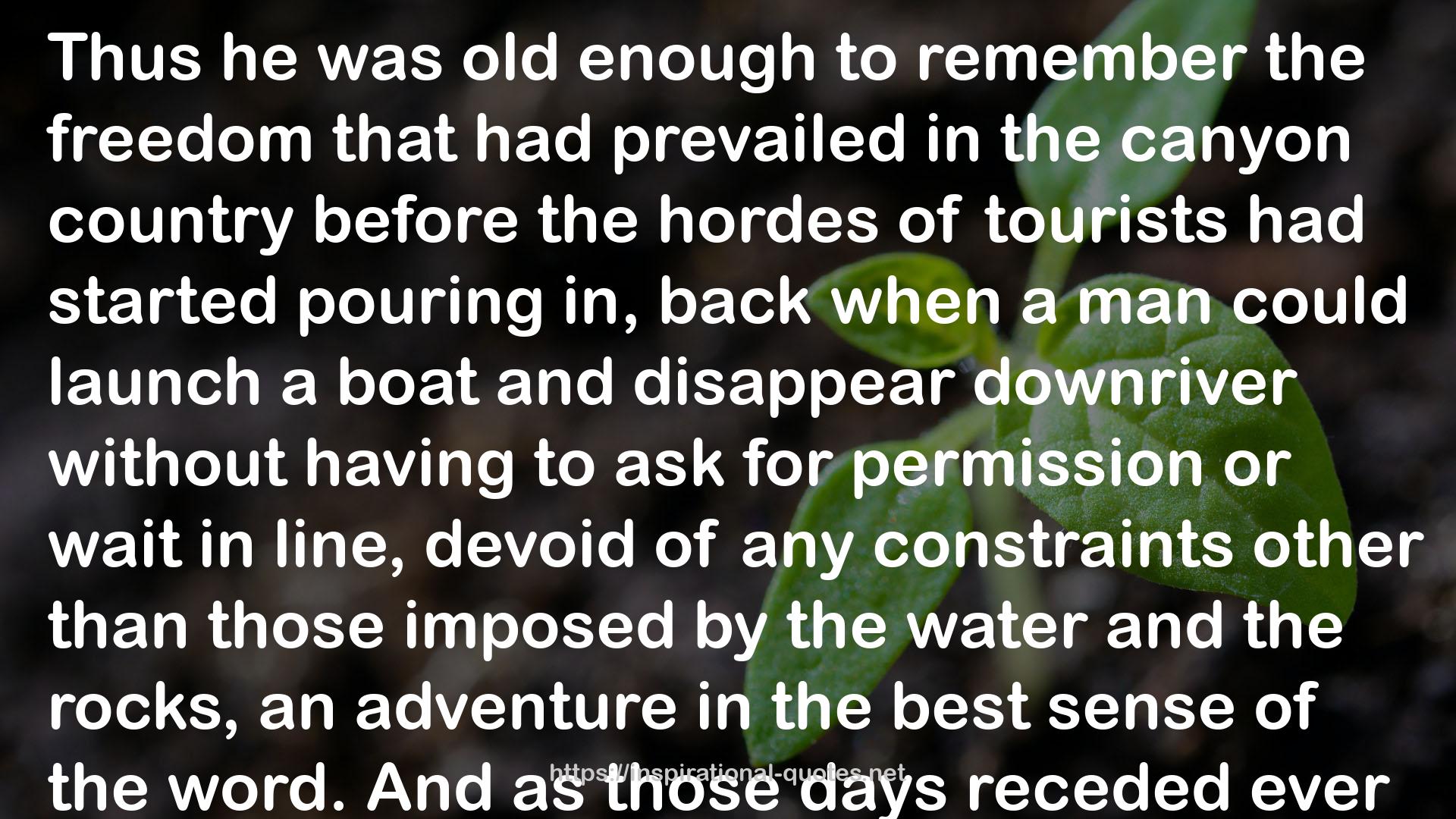" Thus he was old enough to remember the freedom that had prevailed in the canyon country before the hordes of tourists had started pouring in, back when a man could launch a boat and disappear downriver without having to ask for permission or wait in line, devoid of any constraints other than those imposed by the water and the rocks, an adventure in the best sense of the word. And as those days receded ever further into the rearview mirror, there were moments—right now being one of them—when Thomas was forced to wonder about it all. In truth, no one who had tasted those liberties could look back on that time with anything other than a deep sense of longing. Like everyone else who had known the river during that era of innocence, Thomas mourned its passing and privately grieved that it would never return. Which is why part of him sometimes rebelled at the very restrictions he sought to enforce, if only because rules—even rules that were universally accepted as necessary and good—seemed to cut so directly against the spirit that the river had once embodied. This sense of loss now prompted Thomas to ponder a notion that was not merely unorthodox but, when viewed from a certain angle, downright subversive. Was it possible, he wondered, that a measure of what had been lost—the thing that had once defined the essence of this place, the thing that was now in the process of disappearing forever—was that very thing perhaps being offered a chance to express itself one more time, fleetingly, irresponsibly, nobly, right here before him? "
― Kevin Fedarko , The Emerald Mile: The Epic Story of the Fastest Ride in History Through the Heart of the Grand Canyon
